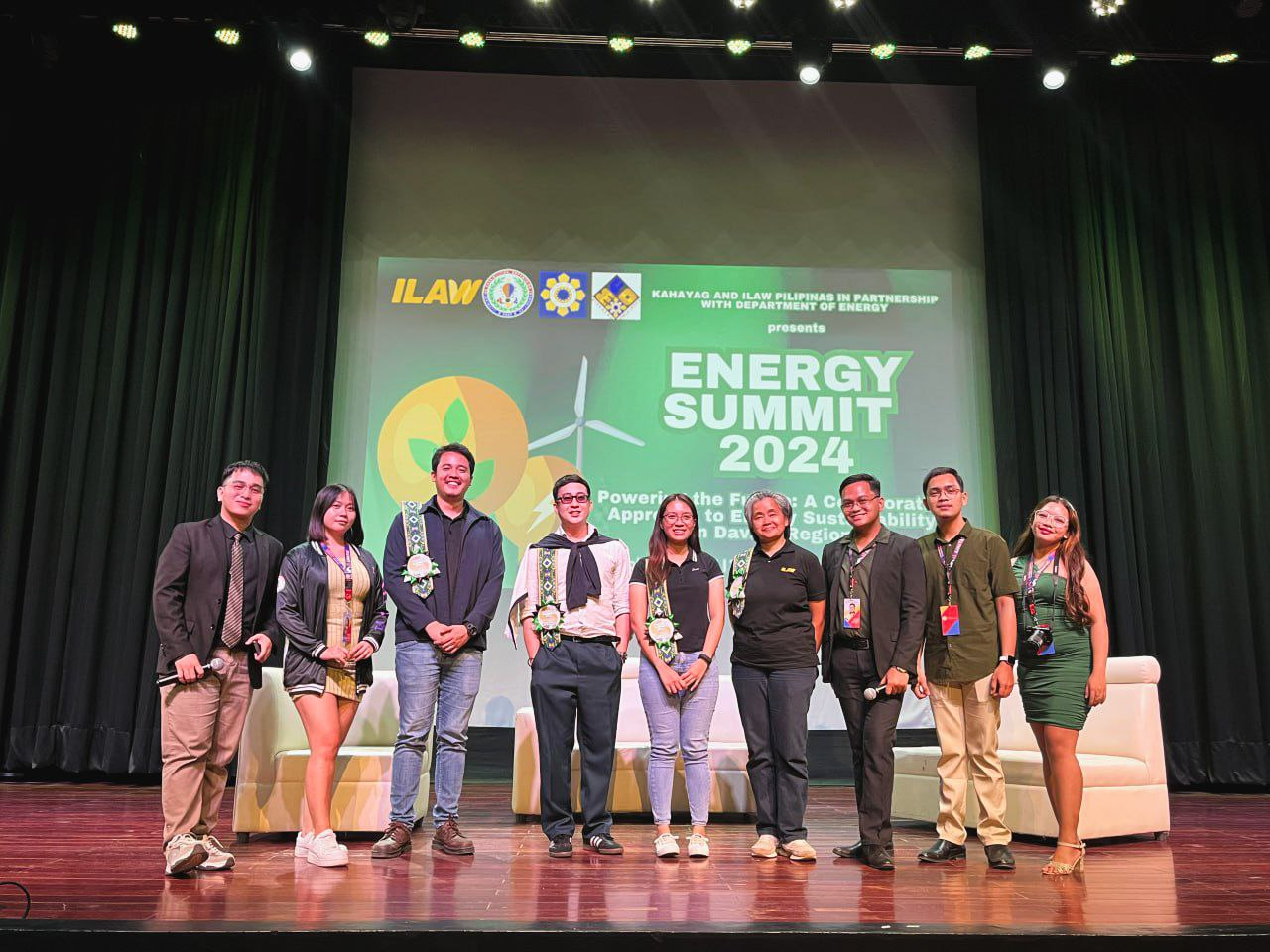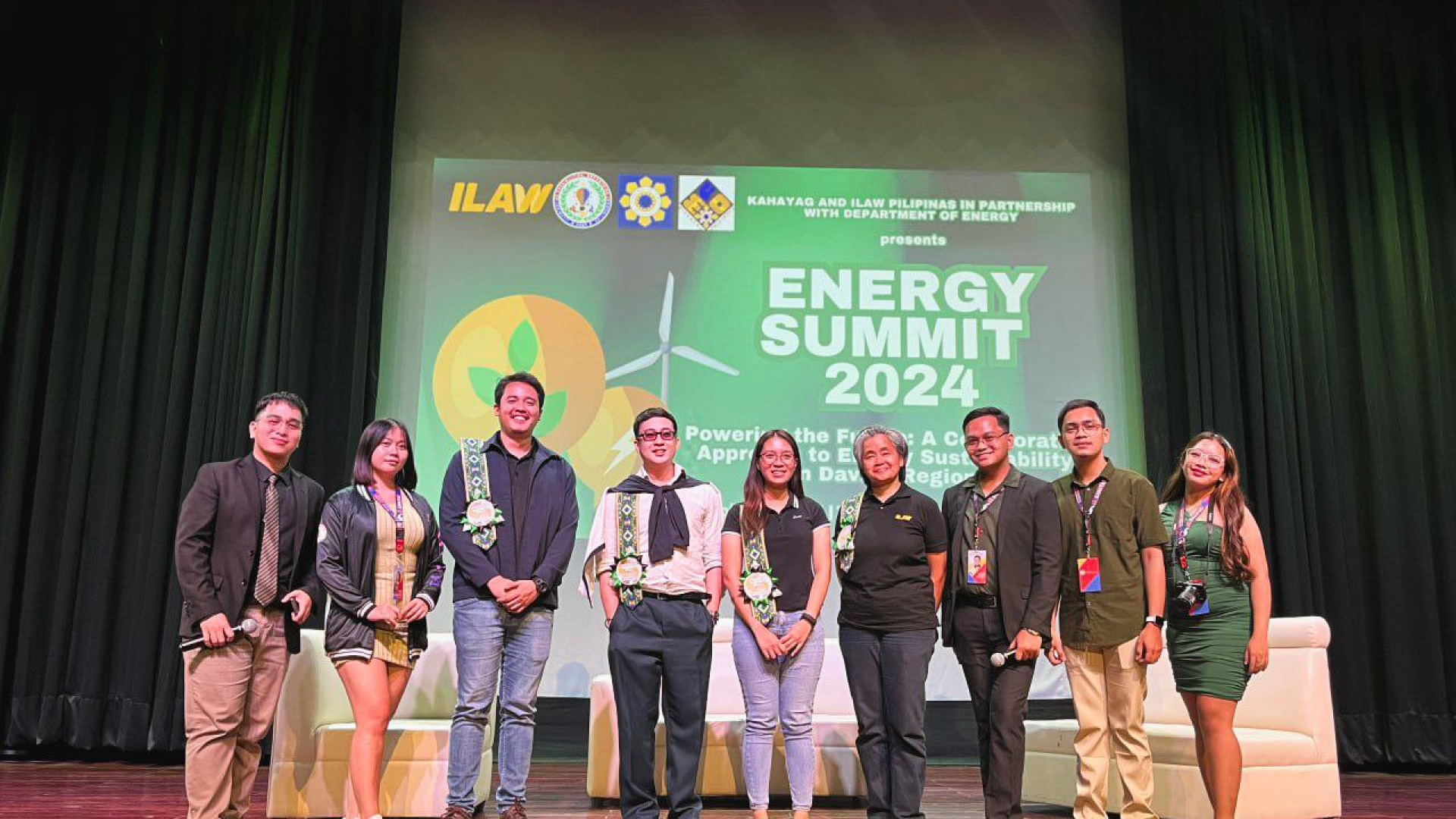The Department of Energy (DOE) Mindanao Field Office and energy consumer organization ILAW shared insights on exploring ways to achieve energy sustainability through collaboration between the government, consumer organizations, and the youth.
The Department of Energy (DOE) Mindanao Field Office underscored the necessity for alternative energy sources, anticipating that the current energy supply in Mindanao is not sustainable enough to address growing demand in the coming years.

During the forum, “Powering the Future: A Collaborative Approach to Energy Sustainability in Davao Region,” representatives from DOE Mindanao Field Office and energy consumer organization ILAW explored strategies to achieve more reliable power sources to ensure long-term energy security nationwide.
Engr. Rapha Julysses E. Perez of the DOE Mindanao Field Office reported that the current energy supply in Mindanao is sufficient to meet the energy demand in the area, with an available capacity of 2,988 megawatts (MW) as of October 2024. However, Perez raised concerns about the region’s future energy capacity amidst growing demand.
“We rarely experience the red and yellow alerts unlike in Luzon and Visayas, and that’s a good thing. Consistent ang supply ng kuryente sa Mindanao, but it won’t be for long. We need more generation supply to recoup the increasing demand,” remarked Perez.
According to the Mindanao Development Authority’s (MinDA’s) forecast, the island could face a power shortage by 2027 to 2028. MinDA Assistant Secretary Romeo Montenegro says Mindanao requires about 100 megawatts yearly to keep up with the growing demand in the island.
The DOE Mindanao Field Office anticipates an 18-percent increase in the country’s energy capacity this year, with more than 1,900 MW coming from renewable energy (RE) sources. In line with the government’s aim to achieve a 50-50 ratio of renewable and non-renewable energy by 2030, Engr. Wendelyn Santander of the DOE Mindanao Field Office shared that the agency is conducting two ocean energy studies in Mindanao with potential capacities of 10.00 MW and 6.00 MW, respectively.
Meanwhile, ILAW’s National Convenor, Agnes “Beng” Garcia, expressed ILAW’s commitment to continuous collaboration with electric cooperatives and government organizations to develop more concrete solutions for brownouts in Mindanao and the rest of the country, beginning with conducting more focus group discussions.
“Since the launch of our study on the economic impact of blackouts on businesses, ILAW has met with mayors and governors to discuss its results and our recommendations. Additionally, ILAW is part of the technical working group to amend the Electric Power Industry Reform Act. We look forward to taking further steps to achieve our vision of affordable and accessible electricity for all Filipinos,” said Garcia.




